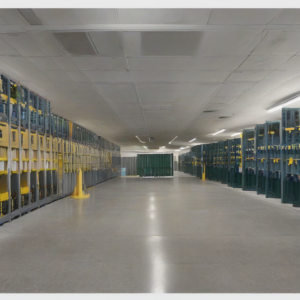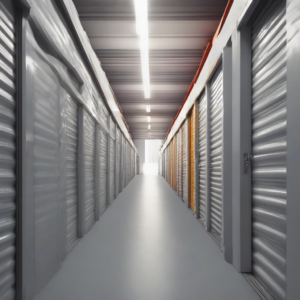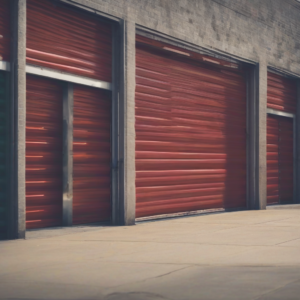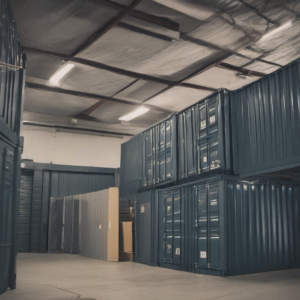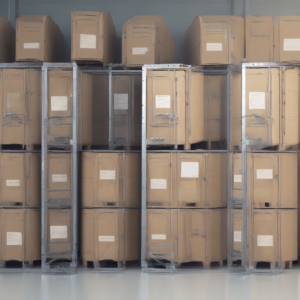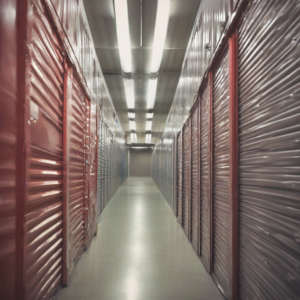Your Ultimate Guide to Self Storage Units in Richmond: Finding the Perfect Space for Your Needs
Richmond, a city brimming with history, culture, and vibrant communities, also presents unique storage challenges. Whether you’re downsizing, renovating, relocating, or simply need extra space, understanding the self-storage landscape in Richmond is crucial. This comprehensive guide navigates the complexities of finding the perfect self storage unit in Richmond, Virginia, covering everything from unit sizes and features to pricing and security.
Understanding Your Storage Needs
Before embarking on your self-storage journey, take time to assess your specific requirements. Consider the following:
- What are you storing? Are you storing furniture, documents, seasonal items, or business inventory? The nature of your belongings dictates the type of unit you’ll need.
- How much space do you need? Measure your items carefully to estimate the necessary cubic footage. Self-storage units are typically measured in square feet, but understanding cubic footage helps avoid overcrowding.
- How long will you need the unit? Short-term rentals usually cost more per month than long-term contracts. Be realistic about your storage timeframe.
- What features are essential? Climate-controlled units protect sensitive items from extreme temperatures and humidity. Drive-up access simplifies loading and unloading. Security features like surveillance cameras and gated access are crucial considerations.
- What’s your budget? Storage unit costs vary significantly based on location, size, and features. Set a realistic budget before you begin your search.
Types of Self Storage Units in Richmond
Richmond offers a variety of self storage options to cater to diverse needs:
- Indoor Units: These units offer protection from the elements and are ideal for storing furniture, artwork, and other sensitive items.
- Outdoor Units: More affordable than indoor units, they are suitable for storing less sensitive items like gardening equipment or seasonal decorations. They are generally not climate controlled.
- Climate-Controlled Units: Perfect for temperature-sensitive items such as electronics, documents, and artwork, these units maintain a consistent temperature and humidity level.
- Drive-Up Units: These units provide convenient access for loading and unloading, eliminating the need to carry items long distances.
- Vehicle Storage Units: Larger units designed for storing cars, boats, recreational vehicles (RVs), and other vehicles.
Locating Self Storage Units in Richmond
Richmond boasts numerous self storage facilities scattered throughout the city and its surrounding areas. Here are some effective ways to locate suitable units:
- Online Search Engines: Utilize search engines like Google, Bing, or DuckDuckGo, incorporating keywords like “self storage Richmond VA,” “climate-controlled storage Richmond,” or “drive-up storage Richmond.” Refine your search by specifying neighborhoods or features.
- Online Storage Marketplaces: Websites such as SpareFoot, Public Storage, and Extra Space Storage aggregate listings from various storage facilities, making comparison shopping convenient.
- Local Directories: Check local online directories and business listings for self storage companies in your desired area of Richmond.
- Drive Around: Driving around your desired neighborhood can reveal local storage facilities that might not be prominently featured online.
- Word-of-Mouth: Ask friends, family, neighbors, or colleagues for recommendations based on their experiences with Richmond self storage facilities.
Factors to Consider When Choosing a Self Storage Facility
Once you’ve identified potential facilities, carefully evaluate the following aspects:
- Location and Accessibility: Choose a facility that is conveniently located and easily accessible. Consider proximity to your home or business and the ease of access during different times of day.
- Security Measures: Prioritize facilities with robust security measures, such as gated access, surveillance cameras, and well-lit premises. Inquire about insurance options offered by the facility.
- Unit Size and Features: Ensure the unit size accurately accommodates your belongings. Consider essential features like climate control, drive-up access, and interior lighting.
- Pricing and Contracts: Compare prices from different facilities, paying close attention to monthly rates, contract terms, and any additional fees.
- Customer Service: Check online reviews and testimonials to gauge the quality of customer service. A responsive and helpful staff can greatly improve your storage experience.
- Facility Cleanliness and Maintenance: A well-maintained and clean facility indicates a commitment to customer satisfaction and the safety of stored belongings.
- Insurance Options: Inquire about insurance options offered by the storage facility or the need to obtain your own insurance coverage for your stored items.
Negotiating the Best Deal
Don’t hesitate to negotiate the price of your storage unit, especially if you’re signing a long-term contract. Consider the following strategies:
- Shop Around: Compare prices from several facilities before committing to a rental agreement.
- Inquire About Discounts: Many storage facilities offer discounts for long-term rentals, military personnel, seniors, or first-time renters.
- Negotiate the Rate: Politely inquire about the possibility of negotiating a lower monthly rate, especially if you’re willing to commit to a longer lease.
- Bundle Services: If the facility offers additional services like packing supplies or moving assistance, inquire about bundled packages that offer discounts.
Moving Your Belongings
Moving your belongings into storage requires careful planning and execution. Consider these steps:
- Packing Supplies: Invest in high-quality packing supplies like boxes, tape, bubble wrap, and packing peanuts to protect your belongings during transit.
- Inventory List: Create a detailed inventory list of everything you are storing, including descriptions and values. This will be helpful for insurance purposes.
- Professional Movers: If you’re moving a large quantity of items, consider hiring professional movers to ensure safe and efficient transport.
- Packing Strategy: Pack items logically and efficiently, labeling boxes clearly with their contents and destination within the storage unit.
- Protect Against Damage: Use appropriate packing materials to protect fragile items and prevent damage during the move.
Maintaining Your Stored Items
Regularly checking on your belongings while they are in storage is essential to prevent damage or deterioration. Consider the following:
- Periodic Inspections: Conduct periodic inspections of your stored items to check for any signs of damage, pests, or moisture.
- Pest Control: Take precautions to prevent pests by using pest-repellent products or keeping your items clean and dry.
- Climate Control: If using a climate-controlled unit, make sure the temperature and humidity are within the recommended range for your stored goods.
- Ventilation: Ensure proper ventilation within your storage unit to prevent mold and mildew growth.
Understanding the Richmond Self Storage Market
The Richmond self storage market is dynamic, with fluctuations in pricing and availability influenced by factors such as seasonality, economic conditions, and neighborhood demand. Understanding these dynamics enables you to make informed decisions.
- Seasonal Demand: Storage unit demand often increases during peak moving seasons (spring and summer), leading to higher prices and reduced availability. Planning ahead is essential during these periods.
- Location Variations: Prices and availability differ significantly across different neighborhoods in Richmond. Researching locations carefully helps secure the best possible deal.
- Economic Factors: Broader economic factors can impact the storage market. Understanding these trends can provide insights into price fluctuations and market conditions.
